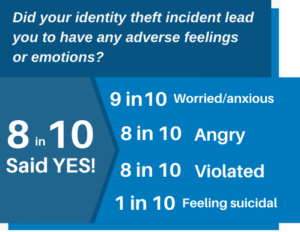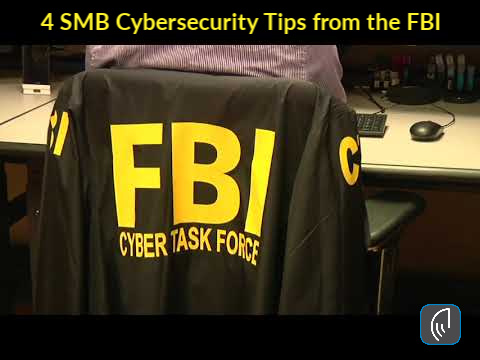
How Identity Theft Can Ruin Your Credit: Essential Steps to Protect Yourself
Identity theft is a serious crime that can devastate your finances and your life. When someone steals your personal information, they can use it to open new accounts in your name, run up debts, and damage your credit score. Here we will discuss How to Protect Your Credit from Identity Theft.
A low credit score makes it difficult to get approved for loans, credit cards, and other forms of credit. It can also make borrowing money more expensive since you will likely have to pay higher interest rates. A low credit score also makes it difficult to rent an apartment, get a job, or even get insurance.
How Identity Theft Can Ruin Your Credit Score
Identity thieves can damage your credit in various ways. Here are a few examples:
- Opening New Accounts: Thieves can open new accounts in your name and not make payments, leading to collections and even bankruptcy.
- Maxing Out Credit Cards: They can max out your existing credit cards, significantly damaging your credit score.
- Changing Addresses: They can change the address on your accounts so you don’t receive important billing information, leading to missed payments and further damage to your credit score.
- Filing for Bankruptcy: Thieves can file for bankruptcy in your name, which will stay on your credit report for up to 10 years, making it very difficult to get approved for credit.
The Impact of a Low Credit Score Due to Identity Theft
A low credit score can significantly impact your life. Here are a few examples:
- Loan Approval: You may not be able to get approved for a loan to buy a car or a home.
- Higher Interest Rates: You may have to pay higher interest rates on credit cards and loans.
- Difficulty Renting or Getting a Job: You may have difficulty renting an apartment or getting a job.
- Insurance Issues: You may have difficulty getting insurance.
- Job Promotions and Scholarships: You may be denied a job promotion or a scholarship.
The Emotional Impact of Identity Theft
Identity theft not only ruins your credit but also has a significant emotional impact on victims. Victims may experience feelings of anger, anxiety, stress, and depression. They may also feel violated, betrayed, and helpless.
may also feel violated, betrayed, and helpless.
According to a study by the Identity Theft Resource Center, 70% of identity theft victims experience emotional distress. The study also found that victims are more likely to experience anxiety, depression, and post-traumatic stress disorder (PTSD) than people who have not been victims of identity theft.
If you are a victim of identity theft, it is important to seek help from a mental health professional. Talking to someone about what you are going through can help you cope with the emotional impact of the crime.
Steps to Recover from Identity Theft
If you find yourself a victim of identity theft, don’t panic. Here’s a systematic guide to help you regain control and mitigate any potential damage:
- Notify Your Insurance Provider: If you have identity theft insurance, inform them first for guidance and help.
- Alert Your Financial Institutions: Contact your bank and credit card issuers immediately to halt transactions and secure accounts.
- Contact Affected Companies: Reach out to companies where the theft occurred to inform their fraud department.
- Implement a Fraud Alert: Place a fraud alert on your credit with one of the three major credit bureaus.
- Review Your Credit Reports: Access your free credit reports from AnnualCreditReport.com and report any discrepancies.
- File a Report with the FTC: Visit identitytheft.gov to file a comprehensive identity theft report with the Federal Trade Commission (FTC).
- Report to Local Law Enforcement: Filing a police report provides an official record of the identity theft.
- Secure Your Online Presence: Change all online account passwords, consider using a password manager, and activate two-factor authentication.
- Replace Important Documents: Apply for replacements for stolen IDs like your driver’s license, passport, and Social Security card.
- Subscribe to Identity Theft Protection Services: Consider services like defend-id which monitor your financial and digital presence, providing alerts and insurance.
Steps to Take if You Suspect Identity Theft
If you suspect you’ve fallen victim to identity theft, take these essential steps promptly:
- Contact Your Financial Institutions: Reach out to your bank and credit card issuers immediately to freeze your accounts and halt unauthorized transactions.
- Report to Your Identity Theft Insurance Provider: Notify your provider right away for guidance and resources, including legal and financial assistance.
How Identity Theft Protection Services Help
Identity theft protection services, such as defend-id, play a crucial role in safeguarding your online and financial accounts from fraudulent activities. With defend-id’s advanced monitoring technology, subscribers receive alerts about potential fraud approximately four times faster than many competing services.
- Comprehensive Monitoring and Swift Alerts: defend-id provides detailed monitoring by keeping track of your personal and financial account activities. If something unusual is detected, defend-id promptly sends out an alert.
- Robust Insurance Coverage: defend-id offers significant financial protection with an insurance policy that can provide up to $1,000,000 in compensation for eligible losses caused by identity theft.
Protecting Yourself from Identity Theft and Fraud
Protecting yourself from identity theft and fraud is crucial. One effective way to safeguard your personal information is by using comprehensive services like defend-id, which offers robust monitoring and insurance coverage.
- Comprehensive Insurance Coverage: defend-id provides each plan member with a $1,000,000 insurance policy.
- Real-Time Monitoring and Alerts: defend-id monitors your financial and online accounts continuously, alerting you swiftly to any suspicious activity.
- Family Protection: defend-id’s Family Plan extends protection to up to five family members, including both adults and children.
- Trial Period: defend-id offers a 14-day free trial, allowing you to experience their service before committing.
Taking proactive steps by enrolling in a service like defend-id can provide peace of mind and significantly reduce the chances of suffering from identity theft and fraud.
Tactics Used by Identity Thieves
Identity thieves deploy various tactics to access personal data. They might steal your wallet, ID, or mail containing personal information, use a change-of-address scam, send phishing emails, texts, and calls, buy your data off the Dark Web, hack into your email, or intercept your data on an unsecured Wi-Fi network. Understanding these methods allows you to be more vigilant and take preventative measures to secure your personal and financial information.
Take Action Today
Identity theft is a serious crime, but you can protect yourself by taking necessary steps to safeguard your personal information and monitoring your credit reports regularly.
Resources:
- The Federal Trade Commission (FTC): 1-877-438-4338
- The Identity Theft Resource Center: 1-888-400-5530
- The National Association of Consumer Advocates: 1-800-644-7222
Don’t let identity theft ruin your credit and your life. Take action today to protect yourself!
Articles related to How to Protect Your Credit from Identity Theft:

 Telehealth growth has exploded.
Telehealth growth has exploded.
